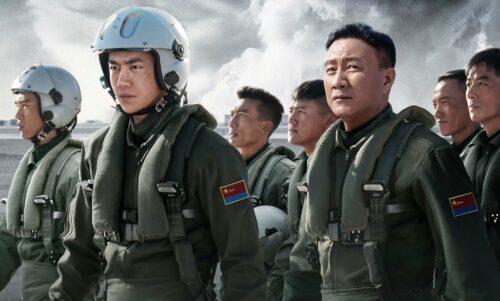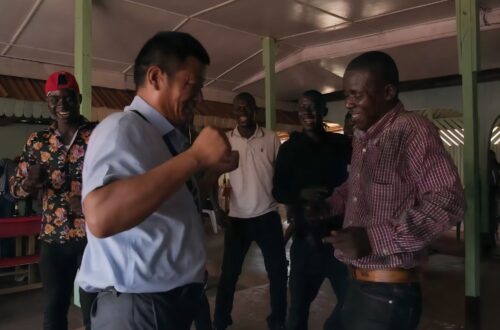Film Friday: ‘Einstein and Einstein’ depicts the painful reality of growing up in China

Storytellers the world over are drawn to bildungsroman, focusing on those moments just before adulthood. But whereas many of the joys and agonies of growing up are universal, some pains are unique — or at least particularly wrenching — to those who experience them in a particular environment. That’s the story director Cao Baoping 曹保平 tells in Einstein and Einstein (狗十三 gǒu shísān), released last month, whose protagonist’s coming-of-age comes with a harsh education in how to manage expectations.
Set around 2006 in the city of Xi’an in central China, Einstein and Einstein follows Li Wan, a 15-year-old girl who is a perfect in every way except for a few “quirky” interests: watching current affairs commentary shows during dinner, reading Stephen Hawking’s A Brief History of Time before going to bed, and listening to heavy rock music alone in her room.
One day, Li Wan’s dog, named Einstein after the great scientist she adores, runs away during a walk with her grandfather. Angry and helpless, Li Wan her dad and her grandparents if they tried looking for the dog, but is told no. She storms out of the house and madly searches for Einstein, pounding on the doors of every house in which she hears a bark. She pushes her grandfather to the floor when she sees him. Her family accuses her of being selfish, while she blames them for being callous. This sets the scene for a transformative, violent moment, one that would set Li Wan on an entirely different — though somewhat surprising — path.
Though generational conflict is universal, the story in “Einstein and Einstein” is almost unique to the experience of growing up in China.
Lady Bird, the Oscar-nominated film that depicts the coming-of-age story of a Sacramento girl in a Catholic school, tells a similar story of an assertive teenager against judgmental parents. But a sharp difference between the two films lies in the extent to which an individual is free to make his or her own decisions — and, as made clear in Einstein and Einstein, the extent to which an individual needs to sacrifice her free will in order to fulfill her duties. In Lady Bird, the judgmental mother, looking into the eye of the self-centered daughter, says, “I want you to be the very best version of yourself.” But in Einstein and Einstein, Li Wan’s dad utters, “Why can’t you listen to me? All I do is for your good.”
Many Chinese parents, like Li Wan’s dad, have unwavering faith in the value of obedience because they were brought up in an era where obedience — or filial piety, in the Confucian order — was the most important value. In one scene, while driving Li Wan, the father cheerfully breaks into the song “The Great Proletarian Cultural Revolution is Just Good.” Parents of this generation may not have any other model for good parenting, and are ignorant to the cycles of conflict that can arise from their authoritarianism.
Director Cao Baoping presents a grim picture of adulthood. Li Wan’s dad is perpetually troubled by workplace problems. And Li Wan’s grandfather, though a loving figure most of the time, cannot hide his prejudices after seeing the birth of Li Wan’s stepbrother: “Li Wan was given a random name; since it’s a boy this time, we must think carefully when naming him.”
Einstein and Einstein was originally meant to be shown in 2013, but was banned by the State Administration of Radio, Film and Television for unspecified reasons. The film is largely based on the life story of the 30-year-old female scriptwriter, Jiao Huajing 焦华静, and was shot in her family’s old house where she spent her childhood.
The best part of the film is that almost every young adult in China might be able to see some element of his or her childhood in the story, whether it’s being force-fed milk by grandparents or sneaking out to play at night despite piles of homework that can never be finished. Chinese millennials are only now beginning to push back against older social norms that govern family behavior; it’ll be interesting to see how they view this film.
Film Friday is The China Project’s film recommendation column. Have a recommendation? Get in touch: editors@thechinaproject.com






